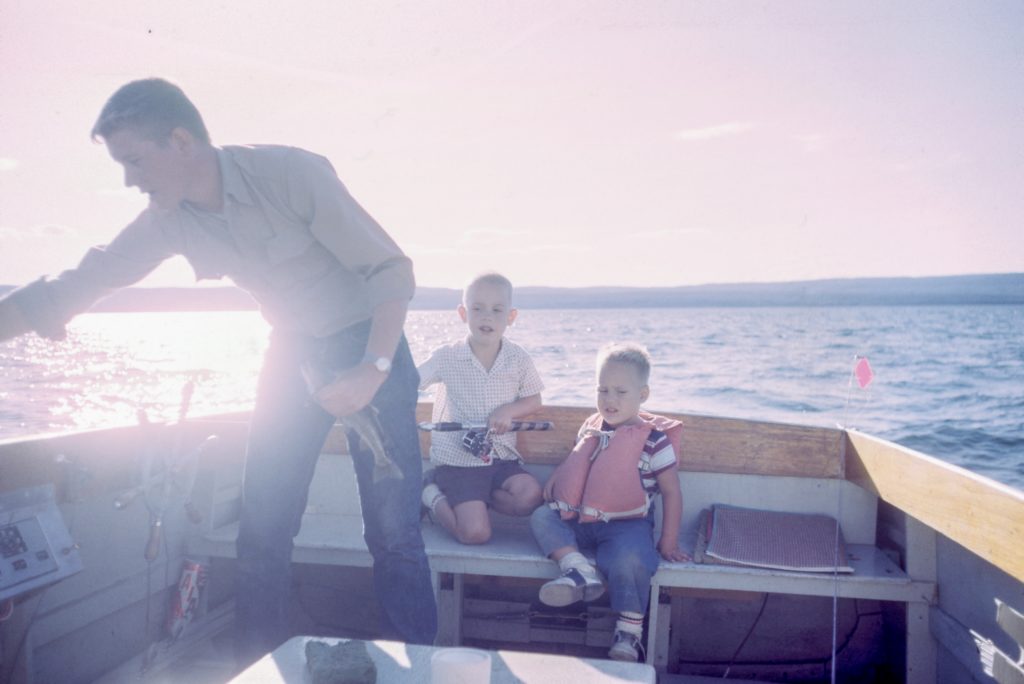![]()
ESFPs are adventurous people who bring a natural warmth and understanding to all their interactions. This type usually makes very good parents once they’ve acquired enough maturity to restrain themselves from running off to explore every new thing in sight. And once they do, they’ll use this love of new things to bring a constant sense of fun and adventure to their children’s lives.
General Overview
ESFPs are naturally warm and generous people who enjoy being parents and bring to the role emotional intelligence as well as a childlike playfulness that makes their children feel both secure and happy. They consider it their responsibility to have grand adventures with their children, to keep them active and learning about the world, and their enthusiasm is usually really contagious. The ESFP will be the fun parent, with enough emotional understanding to recognize the value of insisting on good behavior from their children at all times without being overbearing about it.

“The ESFP will be the fun parent, with enough emotional understanding to recognize the value of insisting on good behavior from their children at all times without being overbearing about it.”
Photo by Les Anderson on Unsplash
Household Organization and Discipline
ESFPs don’t like to create schedules and routines for their children. They don’t like routines themselves and would prefer that their children explore new things in their own way. This is all a part of the ESFPs tendency to live for the moment, and most children will thrive under this type of attentive freedom.
Despite their dislike for rules, ESFPs are usually fairly strict parents. This is because of their emotional intelligence, which clearly sees the mistakes they made in their own lives and wants their children to avoid the same issues. ESFPs understand the value of becoming a responsible member of society and have the emotional awareness to set rules and consequences for their children when they violate these rules. This type of emotional awareness is incredibly valuable in child raising and results in happy children who are well aware of the consequences of bad behavior.
The ESFP and Emotional Support
ESFPs use introverted feeling as their auxiliary function. This little understood function can make people extremely empathetic because it understands emotions and motivations on such a deep, personal level. People who use this function often completely understand and empathize where others are coming from, and ESFPs will use this function to understand their children. As a result, an ESFPs children will never lack for warmth, comfort and emotional security and this is one of the greatest benefits an ESFP brings to the parent child relationship.
The ESFPs Engagement Level
ESFPs need their freedom like all other personality types that use extraverted sensing. This can actually make them a little flighty in their youth until they mature and realize that walking away from everything to explore new things is not always the best way to live. And once they have children, they’re practical enough to realize that their children are completely reliant on them as well as nurturing enough to take pleasure in the life of a parent.
This combination will usually cause the ESFP parent to become very engaged. They’ll happily spend hours playing with their children, indulging their childlike curiosity and fascination with the world, and will teach their children to live creatively and to play as often as possible. And as they grow, ESFPs will watch proudly as they learn and start to explore the world on their own and will make sure they have the perfect balance of nurturing and support to feel safe enough to do so.
The ESFP and SJ Children

“The ESFP parent will also be a good influence on SJ children, encouraging them to move out of their shell and always there so they feel safe to do so. And this combination can encourage SJs to reach higher and further than they ever thought they wanted to.”
Photo by Annie Spratt on Unsplash
ESFP parents are usually a good match for SJ children. SJs are tightly bound to the past and to routine, which often makes it difficult for other types to understand them, particularly those who use extraverted sensing, which drives them to explore the world. ESFPs like to explore, but they usually have the emotional intelligence to understand the needs of their SJ children, and the ability to give them the support and encouragement they need to feel safe and secure. The ESFP parent will also be a good influence on SJ children, encouraging them to move out of their shell and always there so they feel safe to do so. And this combination can encourage SJs to reach higher and further than they ever thought they wanted to.
The ESFP and SP Children
Like most parents, ESFPs will find it easier to bond with children who are similar to them, such as SP children. Because SPs and ESFPs use extraverted sensing, ESFP parents will understand and share their children’s desire for freedom and their interest in exploring the concrete world. And sharing this adventurous way of looking at life can overcome a lot of problems and other personality differences.
The ESFP and NF Children
ESFPs parents will enjoy the emotional intelligence that their NF children bring to their relationship. Sharing a feeling function makes it easier for parent and child to understand each other and gives them a similar value system and way of seeing the world. NF children will thrive under the ESFPs emotional care and intelligence, but may struggle with the lack of an intuitive function. NFs need long, abstract conversations to fuel their minds and feel healthy and the present focused, practical ESFP avoids these at all costs. This may cause conflicts, particularly as the NF child grows, and they will have to find another source for this essential mental stimulation.
The ESFP and NT Children
ESFPs and NT children will probably have a lot of conflicts. These types are very different and this can create problems understanding and relating. NTs like long intellectual conversations and rational ideas where ESFPs prefer action and usually don’t enjoy any type of abstract conversation. ESFP parents will probably struggle to understand why their NT children are so cold and standoffish, and NT children often find their ESFP parents too focused on things that are of no interest to NTs. This will be a difficult relationship, and both sides will have to compromise and see the value in the other even when they don’t agree with it for the health of the parent child relationship over the long term.
Final Thoughts
This relaxed, adventurous type seems to make natural parents. They have a childlike quality to them that makes it easier for them to find joy in spending time playing games with their children and enough emotional intelligence to make it easy for them to understand even the most irrational outburst. ESFP will usually be their child’s best friend, and although this can create problems, in most cases it will create very strong parent child bonds that last for a lifetime.
References
- Robinson T. Michael. “Introverted Feeling (Fi) Explained“. (Retrieved Feb 2018).
- Dr. Drenth A. J. “Extraverted Sensing (Se) vs Introverted Sensing (Si)“. (Retrieved Feb 2018).
- “ESFP – The Performer“.